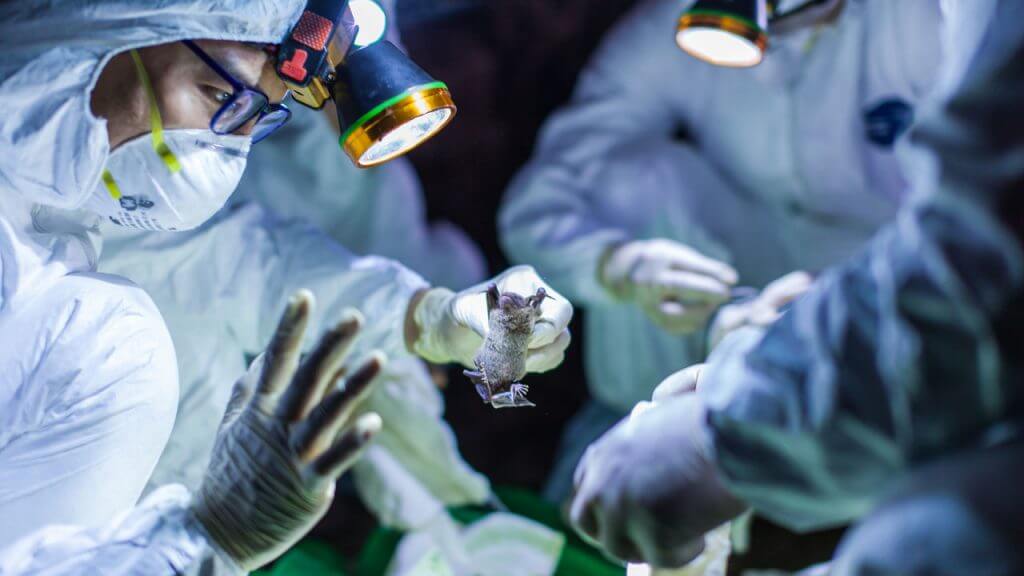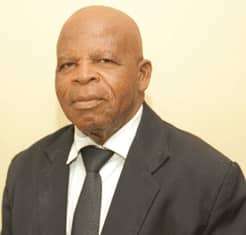How Nigeria can win the war against coronavirus

By Chinagorom Ugwu
When the first case of the deadly coronavirus was reported in Wuhan, China, late December, 2019, no one envisaged that it would sweep the whole world as we are witnessing in countries across the globe currently. China, its epicenter, remains the worst hit with more than 81,000 cases and 3, 281 deaths.
Today, the virus has spread across the world with cases often doubling daily in several countries especially in the US, Italy, Spain, Britain among others. Globally, there are 2, 184, 681 recorded cases of COVID-19 with 146, 898 deaths as of April 17, 2020 according to worldometers.info.
Scientists and other medical experts have swung into action in several countries with the intent to produce a vaccine to use in the treatment of the pandemic while also helping in managing existing cases.
However, as of April 17, 2020, there is no vaccine produced for the treatment of the virus yet, although China has approved testing of three experimental vaccines according to Aljazeera report.
At present, the preventive measures recommended by experts are regular washing of hands with soap and clean water, social distancing, among others.
Consequently, to prevent the spread of the virus, several governments across the globe have ordered total or partial lockdowns in their countries with the intent to identify possible carriers of the virus and isolate them from the rest of the populace for onward treatment.
In Nigeria, like in many other African countries, many frontline health workers and other government agencies are daily making sacrifices to bury this pandemic. Also, public-spirited individuals and private corporations have made donations to different governments — both state and federal governments — to motivate and support government efforts aimed at stamping out the novel disease.
First, these individuals and companies deserve commendations for these sacrifices to the country and Nigerians in this difficult time. Secondly, Nigeria’s federal government and its agencies especially the Nigeria Centre for Diseases Control (NCDC) deserve to be applauded for their commitment and efforts in ensuring that, among other things, fake news is not given the opportunity to jeopardise the war against the pandemic by regularly updating Nigerians with correct information on total number of infected cases as well as those discharged and the number of deaths from the killer virus. This has completely stifled the chances of fake news on COVID-19 thriving in Nigeria.
However, it is my opinion that all efforts against COVID-19 will be fruitless without the country increasing its daily testing capacity to a number commensurate with the country’s population.
As I earlier stated, the purpose of the lockdown is to identify possible carriers of the virus and isolate them from the rest of the populace for treatment as soon as such persons show symptoms associated with the virus. But it must be clearly stated that it is dangerous and against all medical wisdom to rely on when a person shows symptoms associated with novel disease before being tested for the virus.
The NCDC has stated severally that only persons who can get tested for COVID-19 in Nigeria are people who have had contact with a confirmed case, residents of highly moderate-high prevalence of the virus and recent returnees (from outside the country). This is dangerous! According to the NCDC, this decision to restrict testing to these three categories of people was informed by the fact that the testing capacity in the country is still poor.
This restriction of testing to categories of people is dangerous and must stop. The testing should be for everybody – both people with symptoms and without symptoms, had contact with confirmed case or not. There should be no restrictions.
The federal government must remember that the virus has 14 days incubation period and a patient who tests positive to the virus may have infected others in the neighborhood or on the street without knowing, and who will still have to exhaust another 14 days incubation period for the symptoms to show. Additionally, and most importantly, the federal government must also remember that there are patients who are asymptomatic and cannot show symptoms even though they have the virus.
Contact tracing is not 100% reliable especially in Nigeria and most African countries where data are difficult to keep.
It is on this note that I wish to draw the attention of the federal government and other state governments to the fact that the purpose of the lockdown will be defeated without mass testing of Nigerians and other residents so as to identify and isolate the carriers of the virus for treatment.
Our Governments must demonstrate genuine commitment and double their efforts to ensure that the testing capacity is increased remarkably to a certain level that will be commensurate with over 200 million population of Nigerians. Our health sector should begin to receive the attention that it deserves.
Several experts and professional bodies around the world including Africa have emphasised the importance of mass testing to the overall efforts of curbing the coronavirus pandemic with several countries increasing their testing capacities. For instance, Angela Rasmussen, a virologist at Columbia University in New York, told The New York Times, that “without widespread testing and surveillance, we won’t be able to quickly identify and isolate cases in which the patients are pre-symptomatic or asymptomatic, and thus community transmission could be re-established”.
Let me state that I am aware as much as many Nigerians that the country has received aids from private individuals and corporations in form of donations to the tune of over 15 billion naira aside from medical supplies and food stuffs also donated and just recently the European Union gave the country a grant of 50 million Euro to fight covid-19. These are apart from several other donations in form of food and medical supplies to different state governments in Nigeria.
Again, the federal government through the minister of information and culture, Alhaji Lai Mohammed, was quoted by Vanguard newspaper to have said that funds donated by the private sector towards fighting the pandemic were meant for development of healthcare infrastructure and cannot be used to provide palliatives during the ongoing lockdown. If these funds donated by private sector and European union, were meant for the development of healthcare infrastructure in Nigeria as the minister said, it is expected that testing laboratories will be established in all the local government areas in the country with trained professionals stationed at different testing units/laboratories to man them in addition to other projects and measures such as procurement of medical consumables and equipment in fighting the pandemic.
Nigeria must hurry and step up testing capacity. The Presidential Task Force on COVID-19 (PTF) and all parties involved in this war against COVID-19 must advise the president appropriately on this.
Nigeria must not wait to make mistakes before learning. We can learn from other countries and make Nigeria better. Aside from calls by various experts in the world for mass testing and contact tracing, events in other countries of the world should be a lesson to us. For instance, mass testing in South Korea has been identified as the major cause of the country’s ability to contain the pandemic outbreak with over 135,000 daily testing capacity while U.S tests 80, 000 persons daily according to Vox news report.
In Africa, as of April 9, 2020, South Africa had the capacity to conduct 5,000 tests for COVID-19 daily before the South African Government procured 60 mobile sampling and testing units according to South African Health minister, Dr. Zweli Mkhize. According to the United Nations’ un.org, with the addition of those mobile testing units, the number (of 5,000 daily testing capacity) in South Africa will now increase six-fold. It is appalling that South Africa’s current 5,000 daily testing capacity is three times-plus what Nigeria tests a day.
In Nigeria, President Muhammadu Buhari had during a national broadcast on Monday said that the country’s testing capacity has increased to 1,500 people daily. TheCable, a Nigerian online newspaper, quoting data from worldometer.info, an online source for global statistics, reported Ghana, a country of about 28.8 million people, has tested 37, 405 people while Nigeria, a country of over 200 million people, has tested only 5, 000 people.
Analysis from TheCable newspaper based on data gathered from worldometer.info indicated that Nigeria is among the worst performers in Africa and anywhere in the world – as far as testing is concerned. This is very shameful!
Therefore, it is important to reiterate that our governments should wake up from slumber and fashion out ways to revamp our failing health sector as well as join hands together to stamp out coronavirus from Nigeria. Our Governments must realise at this time that lockdown is not an end, but a means. Again, our governments must realise that Nigerians are getting tired and hungry to continue the lockdown or stay-at-home order without achievement of positive results. There are pockets of unrests and protests in several places in Nigeria especially in Lagos and Ogun states. The recent armed robbery attacks in Lagos and defaulting of lockdown order in some states in Nigeria resulting to 18 deaths are signals that Nigerians are tired and unwilling to stomach the pains and sufferings occasioned by the lockdowns any longer.
Resources must be channeled to increase our testing capacity and most importantly, our governments must demonstrate transparency and eschew favoritism and nepotism in the distribution of palliatives across the country to cushion the impact of the ongoing lockdown and stay-at-home order. If these measures are not heeded, Nigeria may face continuous or extension of lockdowns and/or stay-at-home orders without success and may consequently ignite avoidable uprisings from the masses!




